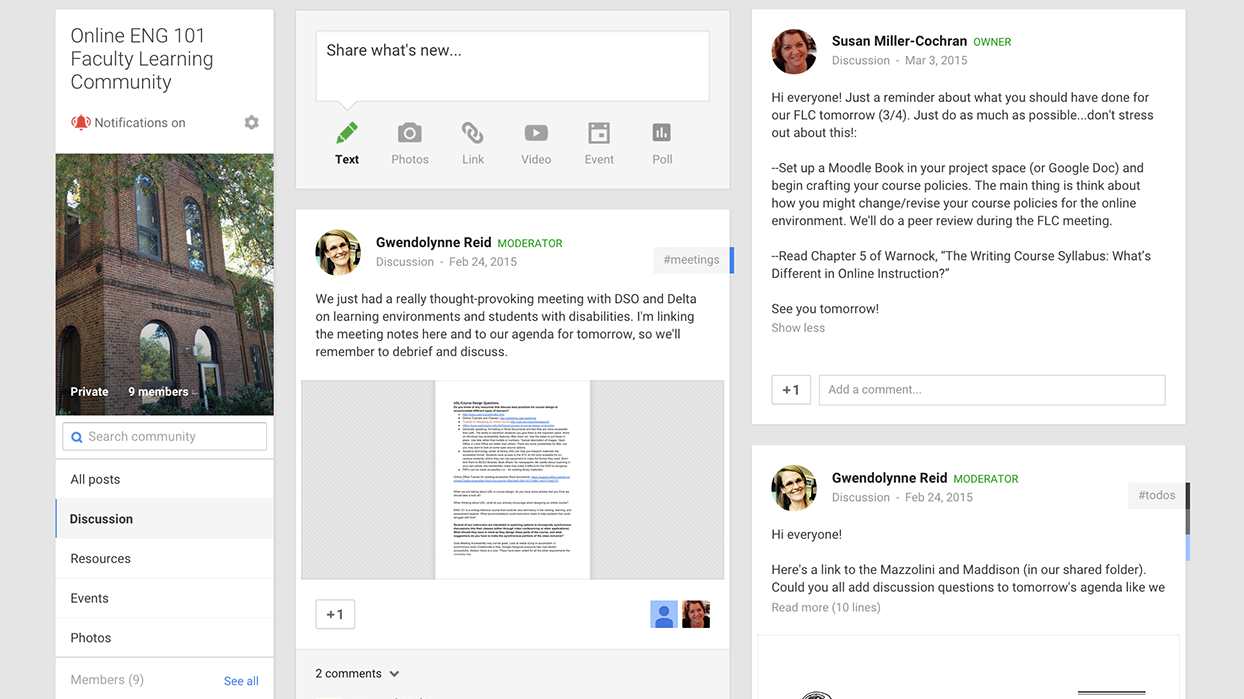Rethinking Critical Path Course English 101

What motives drive faculty to reconfigure the way a large course is designed?
For Dr. Susan Miller-Cochran, director of the First-Year Writing program, taking the leap to offer English 101 online was brought about by the strong desire to make the classes more inclusive and accessible.
English 101 has a firm attendance policy, which can be a disadvantage to students with certain disabilities. These students may benefit from a remotely offered class where they could do group work in a technologically facilitated environment. In addition, English 101 is four credit hours, which may cut into students’ schedules if they participate in other campus activities such as athletics or work-study jobs.
Because English 101 is a critical-path course—meaning every student at the university has to take it for graduation—Miller-Cochran felt it was time to make the classes more welcoming to a wider range of students.
She started working on an application for another type of grant to help her accomplish this, but when DELTA staff saw what the English Department had in mind, they suggested she apply for a grant for a critical-path course redesign instead.
“This seemed appropriate since we were talking about such a sweeping change within the program and how we think about first-year writing,” Miller-Cochran says.
She credits DELTA with helping achieve all four goals she had for this endeavor.
“There are many moving pieces and a team of people who are already really knowledgeable about technology and about the kinds of questions we should be asking, about the existing literature that has been written, about the things we are trying to do that has really been invaluable because I don’t have time to do it all on my own,” she said.
She used the grant to develop a faculty learning community with a small group of first-year writing faculty. The group meets once a week and the representatives from DELTA always join them.
“[DELTA] is part of that conversation, hearing what the faculty are thinking through and developing for their courses and showing us possible technologies to help us troubleshoot ideas,” Miller-Cochran says.
The grant’s salient feature was the creating the English 101 online component. As a domino effect, DELTA suggested a process to get the right students into the right type of sections. This led to creating a directed self-placement assessment that each student takes to receive feedback on why a certain type of learning environment is best suited to them. Finally, DELTA supported the design of the one-hour online English 105 class for transfer students to take in connection with the placement process.
The project has had a trickledown effect, Miller-Cochran says.
“It is an exciting process if you enjoy teaching and learning because no matter what, whenever there is a new learning environment you are looking to move into or design for, it is going to help you rethink everything that you do,” she says. “For English 101, it has caused us to think about what we could be doing in our face-to-face classes or ways that we can use technology to make those sections more inclusive, more accommodating of a wide range of students,” she adds.
The new English 101 and English 105 online courses will start in fall 2015.
If you are interested in DELTA Grants, applications/proposals will be accepted from April 7 through May 15, 2015.


